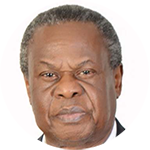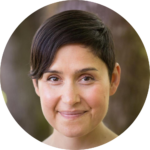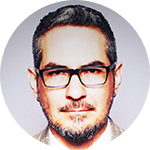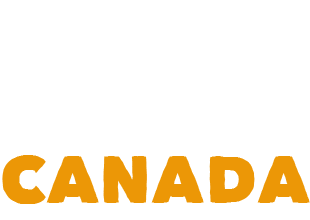KEYNOTE SPEAKERS

Building Back Better
About Rabia Khan
Epidemiologist, Disease detective – Using data and evidence to create real change in the world
With 20 years of experience working across the world, in both government and not for profit sector, I have been solving complex health problems – the Covid-19 pandemic, vaccine hesitancy, antibiotic resistance, diabetes, air pollution, and even making our complex health systems work better. I have worked in big organisations like OECD, NHS, NSW Health, and The George Institute to create change. I am a board member of TUFH – Western Pacific representative.
I work on solving the worlds pressing health problems, the big complex ones. I help people to do more good, to make better decisions and increase their impact to create real change. I work with people to create new knowledge by investigating health problems using data and evidence and build public health expertise globally by sharing knowledge and telling stories.
The world is unfair and not equal. My mission is to help change it so everybody enjoys good health regardless of the colour of their skin or where they live or how much money they have.
Keynote Abstract

About Omaswa Francis
Executive Director of African Centre for Global Health and Social Transformation (ACHEST)
Dr. Omaswa is also chairperson of the Community Engagement Strategy (CES) Sub -Committee of the National Covid-19 taskforce.
He was the Principal Investigator (PI) of the Medical Education Partnership Initiative (MEPI) African Coordinating Center at ACHEST until December 2015. Until May 2008, Dr. Omaswa was the founding Executive Director of the Global Health Workforce Alliance (GHWA) a partnership dedicated to identifying and providing solutions to the global health workforce crisis which secretariat was provided by WHO. This work culminated in the first ever global forum on human resources for health, organized under his leadership and the adoption of the “Kampala Declaration and Agenda for Global Action” which now guides the global response on health workforce development. Before joining GHWA, he was the Director General for Health Services in the Ministry of Health in Uganda during which time he was responsible for coordinating major reforms in the health sector, including the introduction of the SWAPS, Quality Assurance and Decentralization. He has a keen interest in cost-effective approaches for increasing access of the poor to quality health care and spent five years in a remote mission hospital testing various models and innovations for this between 1982 and 1987.
His academic career includes serving as Head of Cardiothoracic Surgery at the University of Nairobi and Kenyatta National Hospital in Kenya and founding Director of the Uganda Heart Institute at Makerere University, Kampala, Uganda. He was involved in undergraduate and postgraduate teaching and mentored many professionals who are now leaders in the field in the region. He served on several university committees. He was also the founding President of the College of Surgeons of East, Central and Southern Africa which covers 12 countries in that region. He has published in the fields of surgery and health services management including human resources for health.
At the global level, he is Senior Adviser to the Ministerial Leadership Initiative for Global Health (MLI), Co-Chair of the Global Advisory Policy Council on Health Workforce Migration, and is a member of several working groups and task forces. He has served as founding Chairman of the Global Stop TB Partnership Board, Chair of the Portfolio and Procurement Committee of the Global Fund Board, Chair of the GAVI Independent Review Committee and a member of the steering committee of the High Level Forum on health-related MDGs and has been an adviser to governments on health policy and strategy in developing and developed countries.
Dr. Omaswa is a graduate of Makerere Medical School, Uganda, a Fellow of the Royal College of Surgeons of Edinburgh, founding President of the College of Surgeons of East, Central and Southern Africa and is a Senior Associate at the Johns Hopkins Bloomberg School of Public Health. He has qualifications in health services management and education as well.
Keynote Abstract
Social responsibility calls upon individuals to be accountable for fulfilling their civic duty, to benefit society while society also supports individuals.
Social responsibility for health is based on the principle that good health starts with individuals who have responsibility for their health through adhering to a lifestyle that does not lead to the loss of health. Individuals within families and communities create conditions for healthy people to remain healthy; ensuring access to household hygiene, quality food, housing, and psycho-social support, among others.
Even when individuals and families know what to do, there are roles that governments cannot delegate in order to ensure that population health is maintained. These include keeping law and order; providing water; educational facilities, and health care when needed. Social responsibility also calls upon individuals to take an active part in the governance of their communities; ensuring that their needs are addressed by governments.
During Covid-19, Village Covid Taskforces were established in Uganda to meet regularly, and mobilize individuals, households, and communities. Supported by equipped and trained Community Health Workers home-based care was provided, suspected cases were referred and households were visited to promote hygiene and address other health conditions. The key lessons learned are that organized communities are capable of finding solutions for many of their health needs and working better with the upstream health system to create conditions that enable socially responsible behavior while holding duty bearers to account.

About Danièle Behn Smith
Dr. Danièle Behn Smith is Eh Cho Dene of Fort Nelson First Nation and French-Canadian Métis with roots in the Red River Valley. She currently serves as Deputy Provincial Health Officer – Indigenous Health in the British Columbia (BC) Office of the Provincial Health Officer. In this capacity, she is a senior health leader actively involved in BC’s COVID-19 response, including through engagement with the First Nations Health Authority, Métis Nation BC, and other Indigenous collectives across the province. Behn Smith brings expertise as a family physician with training in emergency medicine (MD, CCFP-EM); functional medicine (Certified Functional Medicine Practitioner); and population and public health (MPH). She has practiced medicine in rural and remote Indigenous communities across Canada. As both a physician and health leader, her work recognizes self-determination as the foundation of health and wellness among First Nations, Inuit, and Métis peoples, and the importance of Indigenous approaches and healing systems.

Christopher Horsethief
Christopher Horsethief is an educator and organizational theorist specializing in complex systems and social processes, collectively intelligence problem-solving systems and post-traumatic community resilience. For 27 years Christopher has been facilitating field analysis of the relationship between culture and communication, documenting the dynamics that pose challenges to Indigenous leaders and organizational resilience that drives language revitalization. His research interest include social network architectures, cultural entropy and their role in post-crisis cultural network fragmentation. Christopher’s instructional experience includes time with Antioch University’s and Union Institute & University’s doctoral programs, Gonzaga University’s MBA-American Indian Entrepreneurship Program, and the Indigenous Scholar in Residence position at College of the Rockies.
![Nadine Caron - winter[3]-modified](http://tufh2022.com/wp-content/uploads/2022/02/Nadine-Caron-winter3-modified-150x150.png)
Nadine Caron
Dr. Nadine Caron is a member of the Sagamok Anishnawbek First Nation. She is a practising surgical oncologist in northern British Columbia where she provides cancer screening, diagnosis and surgical care for individuals in rural, remote, and northern BC – a large percentage of whom are Indigenous. Dr. Caron is the sole Indigenous physician within BC Cancer, the only Indigenous academic faculty member within the University of BC’s School of Medicine, a Professor at UBC Northern Medical Program and Department of Surgery as well as a Senior Scientist at Canada’s Michael Smith Genome Sciences Centre at BC Cancer. Dr. Caron is the inaugural First Nations Health Authority Chair in Cancer and Wellness at the University of British Columbia. She is also a founding co-Director of the UBC Centre for Excellence in Indigenous Health and Consultant in development of BC’s first-ever Indigenous Cancer Strategy to improve Indigenous cancer outcomes and experiences in BC. “Improving Indigenous Cancer Journeys: A Road Map”. Dr. Caron currently leads the development of the Northern Biobank Initiative, including a First Nations-governed and controlled biobank in partnership with the FNHA that aims to provide safe access to cancer research for First Nations people in Northern BC. She is also co-Lead investigator on the Silent Genomes project which aims to address the genomic divide by reducing access barriers to diagnosis of genetic disease in Indigenous children and facilitating a governance framework to inform policy in fields of data sovereignty, genomic research, Indigenous research processes, among others.Dr. Nadine Caron is a member of the Sagamok Anishnawbek First Nation. She is a practising surgical oncologist in northern British Columbia where she provides cancer screening, diagnosis and surgical care for individuals in rural, remote, and northern BC – a large percentage of whom are Indigenous. Dr. Caron is the sole Indigenous physician within BC Cancer, the only Indigenous academic faculty member within the University of BC’s School of Medicine, a Professor at UBC Northern Medical Program and Department of Surgery as well as a Senior Scientist at Canada’s Michael Smith Genome Sciences Centre at BC Cancer. Dr. Caron is the inaugural First Nations Health Authority Chair in Cancer and Wellness at the University of British Columbia. She is also a founding co-Director of the UBC Centre for Excellence in Indigenous Health and Consultant in development of BC’s first-ever Indigenous Cancer Strategy to improve Indigenous cancer outcomes and experiences in BC. “Improving Indigenous Cancer Journeys: A Road Map”. Dr. Caron currently leads the development of the Northern Biobank Initiative, including a First Nations-governed and controlled biobank in partnership with the FNHA that aims to provide safe access to cancer research for First Nations people in Northern BC. She is also co-Lead investigator on the Silent Genomes project which aims to address the genomic divide by reducing access barriers to diagnosis of genetic disease in Indigenous children and facilitating a governance framework to inform policy in fields of data sovereignty, genomic research, Indigenous research processes, among others.

Shawn and Heather Atleo
Heather Ya’ak chumat axa’ and Chief Shawn ‘Ah up wa eek’ Atleo - Founders, Atleo Centre for Compassionate Leadership
Together, Shawn and Heather Atleo are partners in life and work, and engage in a full co-leadership approach in a variety of intersecting streams including education, business, and politics, while always connecting in mental and emotional health and well-being.
They provide compassionate leadership coaching and training through their Compassionate Leadership Institute. This work is founded on indigenous philosophy and worldviews as well as mainstream advancements in areas such as child development, non-violent communication, empathy and the neuroscience of mental and emotional development.
They also work to advance First Nations reconciliation. They serve as Co-Chairs with the Tsilhqot’in National Government Chiefs’ Council in the implementation of their 2014 Supreme Court Aboriginal Title Case win. Shawn and Heather continue to strive to develop compassionate approaches and and strategies to build strong and meaningful partnerships that support, respect, understand and empower First Nations and that constructively disrupt systems that do not yet fully recognize or ‘see’ each other.
Heather Atleo, “Ya?ak chumat axa”, is of mixed settler and Blackfoot ancestry and is an experienced leader in the area of conflict resolution, negotiation, mediation, senior strategic analysis, and facilitation working with First Nation leaders, academic institutions and non-profit organizations, federal/provincial leadership at the Premier/Prime Minister and Ministerial level, and Industry CEOs. She has an extensive background in transformative leadership and change management, strategic partnerships, engagement, communications, and policy analysis and development. Heather has spent the majority of the last 20 years in the political environment supporting and working with/for First Nations and First Nations leaders locally, regionally, provincially, and nationally, and has supported successful negotiations of large-scale agreements. She is also extremely passionate and has decades of expertise in the area of health and wellness leadership and mental health advocacy.
Shawn ‘Ah-up-wa-eek’ Atleo brings 30 years of leadership experience including elected leadership. Shawn is a Hereditary Chief from the Ahousaht First Nation (part of Nuu-chah-nulth) and former twice-elected National Chief of the Assembly of First Nations. He was first elected in 2009 and then re-elected in 2012. The National Chief is elected by the over 633 First Nations from across Canada and serves as the lead advocate representing First Nations in Canada and globally. Shawn held this role after serving back-to-back terms serving the 203 First Nations in BC as Regional Chief in 2003 and then in 2006. It was in this role that he helped found the BC First Nations Leadership Council, which brought together senior First Nations leadership organizations to work together.
Shawn has two wonderful grown kids, and Shawn and Heather are together parents of 3 wonderful young girls and a baby boy, in Squamish BC.
JOIN THE NETWORK: TUFH
Come unite with global health leaders, capturing their passion, and an ongoing commitment for global equitable health. Join the Network: TUFH as an institutional or individual member.
QUESTIONS?
Please contact us with any questions or inquiries and we will respond as soon as possible.
Email: secretariat@thenetworktufh.org
